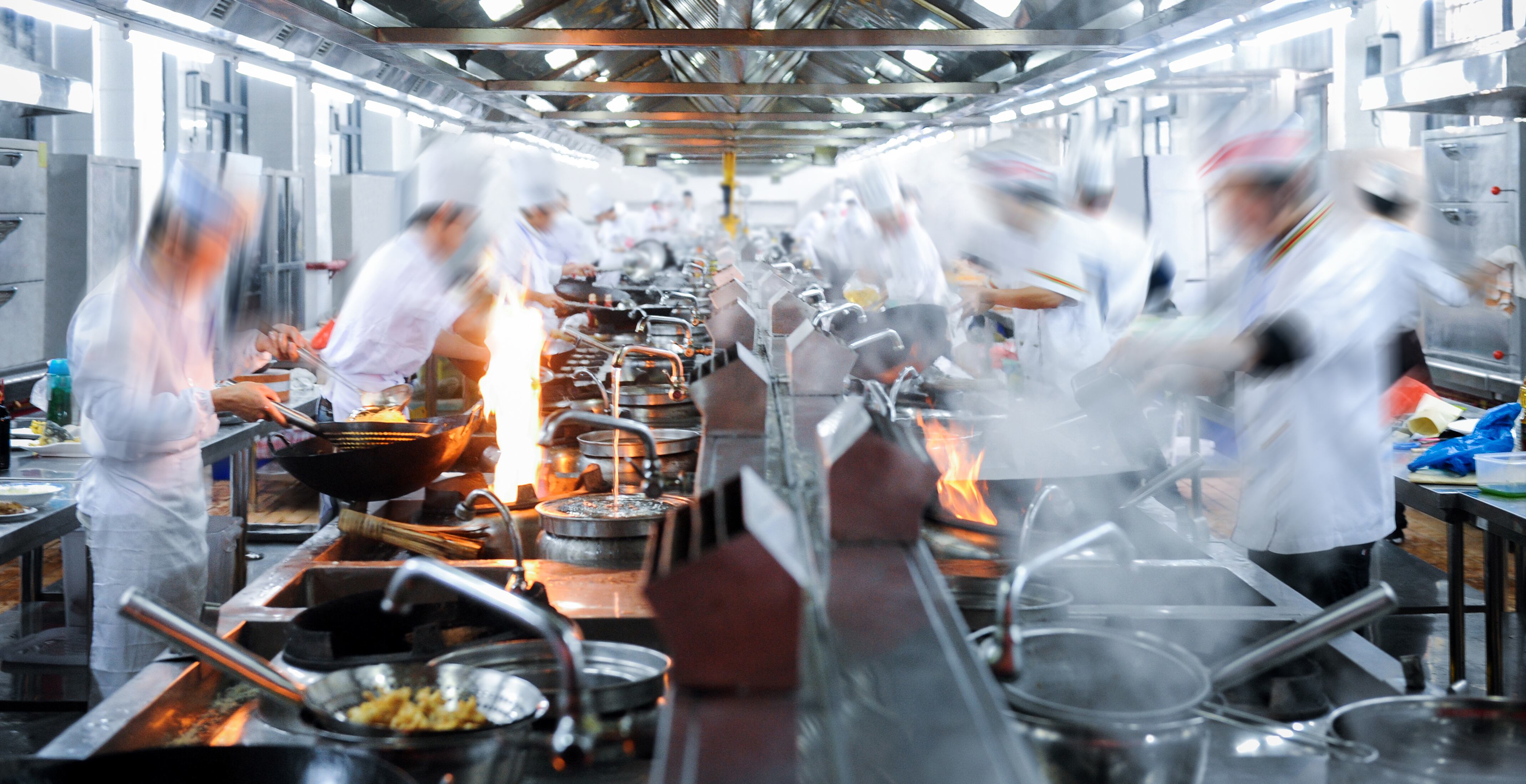This followed an interview in The Times with chef Jason Atherton who denied having witnessed sexism in kitchens.
Atherton subsequently shared a response on Instagram where he said he did not condone sexism in the industry or anywhere.
Moreover, 70 female chefs and hospitality professionals have signed an open letter, published in The Telegraph, that calls for an end to sexism in the industry.
The letter also said there was a “pitiful representation” of women at the recent Michelin awards ceremony.
The open letter in full:
To all those who benefit from the joys of dining out,
We are a group of 70 female chefs and hospitality workers and we need you to know that we are tired.
Exhausted by an industry so systematically flawed that we struggle to see ourselves within it.
This week, we find ourselves outraged by Jason's Atherton's interview in The Times in which he appears to deny every having witnessed sexism within his kitchens - a statement which we know, with absolute certainty, is not true.
This on top of last week's pitiful representation of women at the UK's Michelin awards, means we can no longer sit in silence.
We write to you with a sense of urgency, hope and determination in a bid to change the narrative which denies our experiences and talents.
Our kitchens, dining rooms and bars are the beating hearts of an industry that brings joy, comfort and connection to countless lives.
Yet, within these spaces, we face issues that must be addressed to create a more inclusive, equitable and positive work environment for all.
Sexism has been and remains a pervasice issue in our industry, shaping the culture of our kitchens in ways that diminish the potential and contributions of countless talented women.
From inappropriate comments and behaviours to unequal opportunities for advancement, these experiences hinder not only individual careers but the growth and innocation of our indusry as a whole.
The lack of diversity celebrated within prestigious award bodies such as Michelin and 50 Best is a reflection of broader systemic issues of privilege and racism.
Over the past four years, only two women have been awarded Michelin stars.
This is by no means representative of the female talent within the industry.
We must confront these biases and work actively to create opportunities for chefs and hospitality workers from all backgrounds.
Diversity is not just a goal; it is a source of strength, creativity and resilience.
By embracing and celebrating diverse voices, we enrich our culinary landscape, allowing us to freely interact with our customers and friends without barriers.
In our view, the only way to do this is by rectifying the lack of women and people of colour in leadership roles, who can understand, cultivate and support talent at all levels through mentorship, training programmes and equitable hiring practices.
Moreover, we continue to be frustrated by separate awards categories for women. This does not foster true equality.
By placing women in another category, we perpetuate the notion their achievements are different or lesser.
True recognition must be based on merit alone and we urge these award committees to eliinate these separate categories and celebrate excellence in all its forms; without distinction based on gender.
It's no secret our industrty faces significant challenges, from economic pressures to changing consumer expectations.
To weather these difficulties, we mus futureproof our industry by creating inclusive and positive work environments, ensuring they have the tools and opportunities to thrive.
We acknowledge positive changes are already happening, thanks to the efforts o some dedicated individuals and allies.
We celebrate these achievements and recognised those who stand with us in advocating for equality and diversity.
However, today we call on our colleagues of all genders to challenge and dismantle the harmful practices we're highlighting.
We implore you to help us to create a brigher, more inclusive future for our industry because respect, equality and support must be the foundation of every kitchen.
In solidarity,
The 70
Chef-patron of the Parkers Arms in Newton-in-Bowland, Lancashire Stosie Madi told The Morning Advertiser (The MA): “Having always owned my own business, investor free and not having worked for anyone else (yes, I am very lucky), I have not been exposed to sexism in the kitchen, which I am thankful.
“As a female in the industry, I do feel women are very overlooked in favour of men.
“I do know [from] many female friends in the industry, how bad it is, what they have had to put up with and I have witnessed women being belittled by men in charge in the past.
“I know there is change, good change especially among the younger, new generation, but it is very slow and the old guard are still well ensconced out there.
“Most importantly, men like Atherton have this delusion about equality of the sexes in the kitchen.”
Owner of the Rat at Anick, Near Hexham in Northumberland Karen Errington recognised times had changed but also referenced the recent Michelin ceremony.
She said: “In some respects, times have changed. People get cancelled now for not very much and other industries have been very sexist in the past - of course, that goes without saying.
“But you only have to look at the recent Michelin ceremony as clear evidence sexism exists and women can’t flourish the same way as men.
“Otherwise, why was there only one female chef on the stage and presented with a man’s jacket?”
Treated as equals
The chef-patron added: “Having a female chef category in awards is sexist and demeaning in itself. Why not just best chef? What has gender got to do with it?
“Women should be treated as equals, not side-lined into a separate category that is really nothing more than a tick box exercise.”
Madi echoed previous comments about the Michelin ceremony and stated no equal representation at awards like these encourages sexism.
She added: “For me, the most glaring evidence of sexism in the kitchen and the industry as a whole is Michelin parading a line of awarded chefs with one female only for 2025 and getting away with it.
“Worst of all, excusing this by showing a video where they purport to be trying to encourage women to come forward with a patronising and belittling video tape.
“They got away with it. This would not happen in another industry in this day and age.
“All men kitchen brigades who use the excuse ‘there’s no women' are another example of sexism in the industry.
“Every time there are awards, exposure, PR situations for the industry, there is no equal representation for women on them, which is also encouraging sexism in the kitchen.”
The chef-patron called for sexism to be flushed out of all parts of the hospitality industry.
“Trade, national papers, TV and social media should not give press time to any awards like Michelin or guide books that do not include women [and] stop portraying the male super chef to be worshipped and adored,” Madi said.
“Women do not like to engage in such behaviour and it can put women off the industry.
“It is time all parts of our industry, from the kitchen to the front and those that represent us support the cause and flush out sexism.”
Having a zero-tolerance approach towards sexism in kitchens is one way to make things better, according to Butcombe Group director of food and drink Alice Bowyer.
Zero-tolerance policy
She said: “We have made strides forwards, no doubt about that. In our kitchens in particular because we have had a zero-tolerance policy on this subject for some years, we are striving to run positive, friendly, welcoming kitchens to everyone and thrive in their workplace.
“I am acutely aware we still have a huge gender gap in our kitchens and that is the reality of an industry not doing that much to encourage girls and women into kitchens.
“My experiences and many others we have seen come out this week have shown the past and more recent issues we are facing, we have unfortunately had to deal with a couple of instances in our kitchens in the past 12 months that say to me, there is still work to be done.
“The industry as a whole? I still hear of some horror stories ranging from sexual harassment, being overlooked for promotion and lack of progression opportunities and most commonly, being subjected to macho sexist behaviour dressed up as ‘banter’ as if that is justifiable.”
While improvements have been made, there is still more work to be done going forward.
“We are getting better at talking about it, there are more and more resources and groups available to women (and all genders) to get better educated about the issues and what we can do about it,” Bowyer said.
“I still feel like you have to try a bit too hard to find it but they are there - Countertalk, the Burnt Chef Project to name a couple.
“I don’t see as much ‘obvious’ sexual harassment/abuse as I did as a younger chef but I have surrounded myself with great people and now try and lead change within my workplace to hep the wider industry culture.
“We still have some way to go to reduce the amount of sexist attitudes and behaviour.”
In order for the sector to improve, there needs to be zero tolerance at all levels, Bowyer highlighted.
She added: “The more we can have a clear and transparent line, it send a message to everyone that we run positive, friendly and welcoming kitchens that in turn will help recruit more people into our industry and help stabilise turnover and reduce burnout.
“We should promote equal pay policies, actively encourage women into leadership roles, provide training on harassment and respectful workplace behaviour (The Burnt Chef Project is a great provider of support and training).
“At a simpler level, we should foster a culture of open communication where concerns can be raised without fear of retaliation and actively address gender imbalances staffing across different levels of the business.
“We need our male (and all genders) allies to continue to help amplify the issue and help create change, I’m thankful to work with a lot of them today.
“We MUST see more successful women chefs in the media, more women recognised for achievements, so young people can be inspired and see it can be achieved.”





